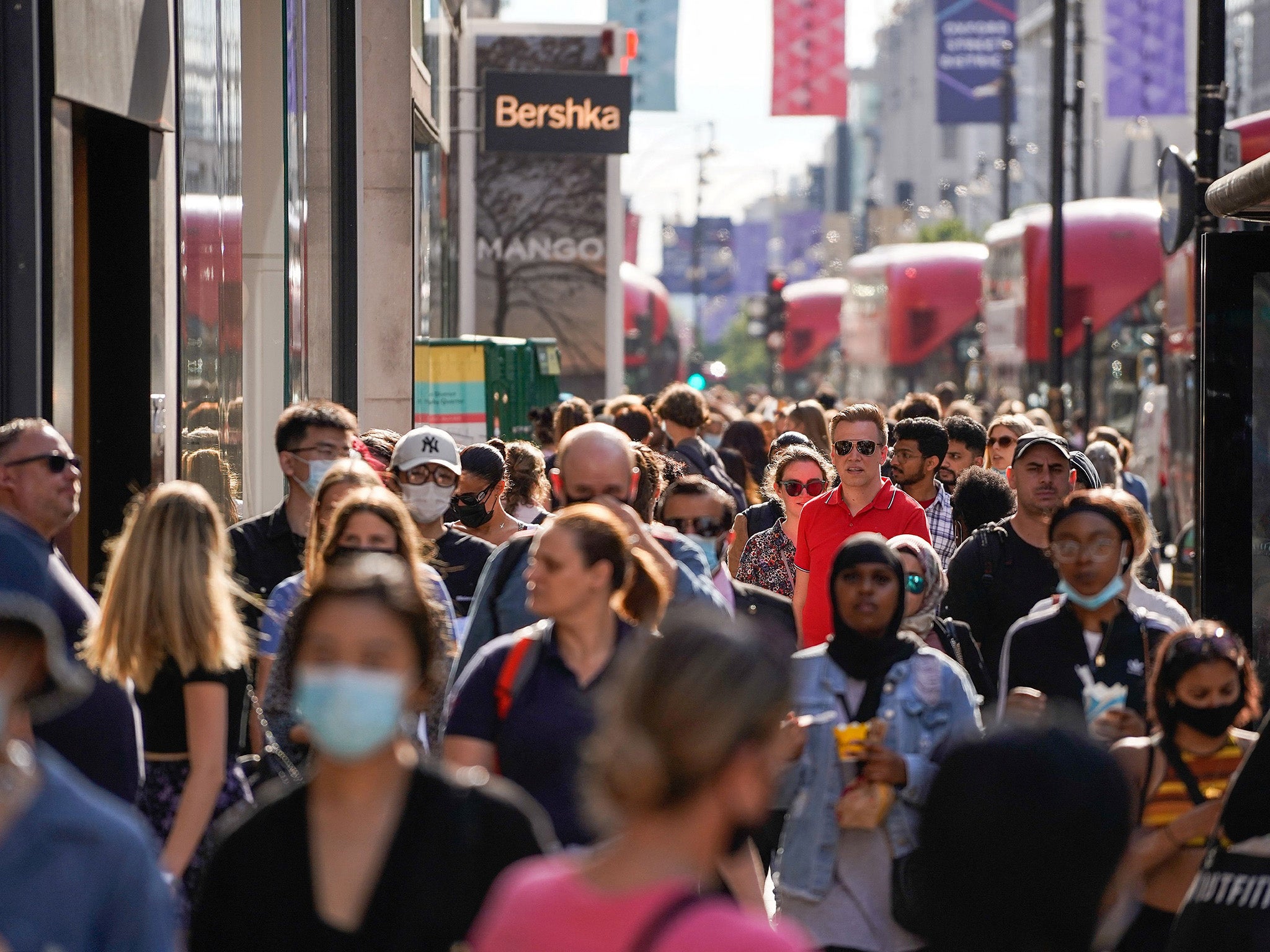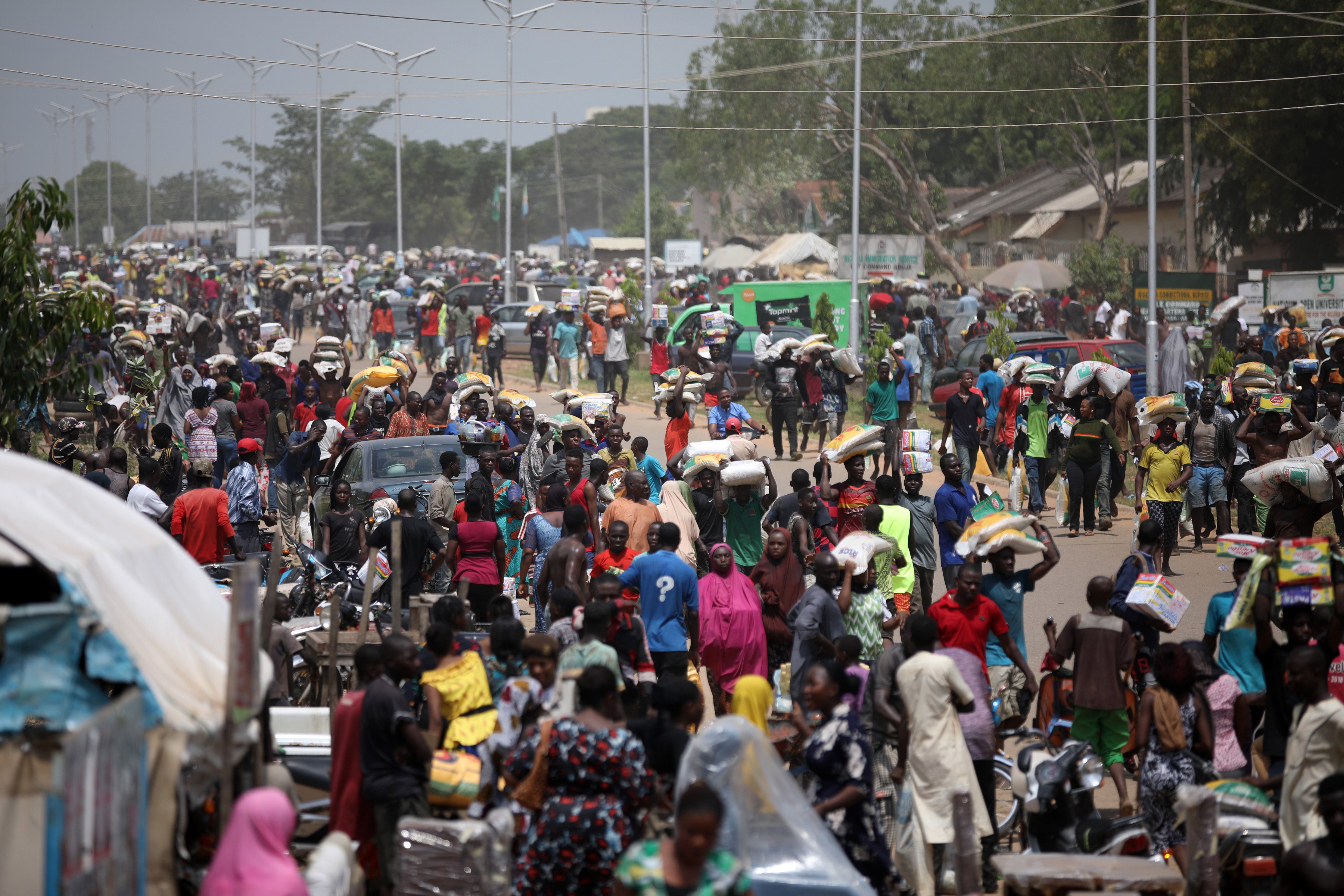The societal pyramid scheme: Are we heading for depopulation disaster?
The world’s population is set to expand to 9.7 billion but will contract sharply by 2064 with enormous economic, social and geopolitical implications – with urbanisation becoming a universal form of birth control. Sean Smith investigates


The global population has doubled in just 40 years and at some point in 2024 Earth will welcome its 8 billionth human inhabitant. But apocalyptic fears of overpopulation are unfounded because global birth rates are plummeting as a side effect of urbanisation. Paradoxically, our willingness to cluster together in gridlocked and crowded cities might just save the planet from the scourge of overpopulation but according to Nobel laureate Steven Chu, we’re going to need a very different economy.
Professor Chu, the former US Secretary of State for Energy, has famously compared the global economy to an unsustainable pyramid scheme because all models of future economic growth depend on the phantom purchasing power of the billions who will never be born. What’s more, he said everyone knew it but no one was talking about it.
Officially, the United Nations acknowledge that the rate of population growth will slow but still grow to reach 11 billion by 2100. But, demographers now believe that the UN forecast is wrong because it fails to recognise the extent to which urban workplaces have become hostile environments for working mothers.
As society urbanises, emancipated women in wealthy nations invariably choose to start families later in life and have fewer children. Falling birth rates have been well documented in richer nations for decades.
But now in what has been described as “one of history’s most astounding global shifts” the same phenomenon is playing out in newly emergent, economic powerhouses like China, Brazil, Thailand, Iran and Sri Lanka far sooner than expected.

As a result, according to an influential study published in The Lancet, Earth’s population will continue to expand to 9.7 billion before contracting sharply by 2064 with enormous economic, social and geopolitical implications.
Population analysts say 2.1 is something of a “just right” goldilocks number explains David Coleman, Emeritus Professor of Demography at Oxford University. “It’s the replacement rate or the average number of children that women need to give birth to in order to maintain stable population levels,” he says.
Professor Coleman explains why the unstoppable migration of young people from rural areas to urban centres is forcing births below the replacement rate globally: “When people move from the countryside to cities, they stop viewing children as assets and instead start seeing them as liabilities. In cities where apartment accommodation is restrictive larger families become too expensive especially when childcare costs are factored in.”

It’s almost as if urbanisation has become a universal form of birth control by default. Professor Coleman believes Japan’s replacement rate of just 1.4 is a warning of what can happen when nations neglect child-friendly policies: “Japan has been stuck with very low birth rates since the 1970s, which has had tremendous negative momentum. Social modernisation has not kept pace with scientific modernisation. It’s still a culture dominated by a very powerful business sector where employers do not give much help to working mothers who also don’t receive that much help from their partners because of the cultural baggage around child care. Mothers also experience extreme levels of competition to get children into the best schools and universities. There’s also the responsibility of taking children to crammers after school, which places a tremendous burden on working mothers.”
It’s perhaps not surprising that political leaders are reluctant to pursue policies that won’t come to fruition for decades and that are designed to fix a problem that society doesn’t yet know it has
The trend is clear: in countries where cultural responsibilities continue to weigh heavily on women, they are using their newfound freedom to have fewer children. Just like Japan, Italy also has a rapidly ageing population where the responsibility of care falls to women who are still of child bearing age.
“As parts of Italy have modernised more women have moved into higher education and professional roles but at the same time the same obligation to families places an impossible burden on women,” says Professor Coleman, who believes that mitigating the worst effects of population decline depend on making the job market a less hostile environment for working mothers.
“Sweden’s family-friendly policies are aimed at keeping women in the workforce while they’re having children. We also need to make it easier for women to remain in employment and get promoted by supporting their child care needs.”
The birth rate is in the UK is now just 1.57. According to a report released in September, by the influential thinktank The Social Market Foundation (SMF), the first step is acknowledging that we have a problem.

It argues that it’s time for UK policymakers to consider “liberal pronatalist policies” where people who want to have children, or have more children, are given more support to do so.
Nearly 30 per cent of countries have adopted explicitly pronatalist measures to tackle the problem of depopulation. Although the Scottish government has a “population taskforce” the UK is yet to join them.
“Many other liberal democracies are exploring the use of policies like cash payments to parents, more generous parental leave and cheaper childcare to make it easier for those that want children to have them. Here in the UK we should consider the merit of these policies– not least because they would bring many other benefits to parents, children and wider society, ” says Aveek Bhattacharya, chief economist at the SMF.
Nations like Sweden have shown that such policies can boost the birth rate but only to a limited extent. As yet there is no evidence of a nation using child-friendly policies to restore the birth rate back to that all-important replacement rate of 2.1.
Once low birth rates set in they become cultural norms very quickly and very difficult to shift.

What’s more, such policy initiatives are extremely expensive and usually discontinued in periods of economic downturn.
It’s perhaps not surprising that political leaders are reluctant to pursue policies that won’t come to fruition for decades and that are designed to fix a problem that society doesn’t yet know it has.
The backdrop of long-term population decline is the reason why economists have been making the case for immigration for decades. Welcoming young workers from around the world not only aids economic growth but grows the tax base, and reduces the demographic imbalance of a rapidly ageing population.
But since the financial crisis of 2008, many political leaders haven’t dared to make that argument instead succumbing to political pressure to tighten immigration controls. It means that developed and developing countries don’t accept anything like enough immigrants to make up for the shortfall in births.
Even though anti-immigration policies are a form of demographic suicide, they are driving the rise of populism around the world.
6%
Population decline in eastern Europe since the 1990s
Eastern European countries like Hungary and Bulgaria are virtually closed to immigration while freely exporting their young. The UN estimates that the nations of eastern Europe collectively have lost 6 per cent of their population since the 1990s, or 18 million people, a population cull equivalent to the disappearance of the Netherlands.
Brexit is just a local manifestation of a global phenomenon. A visitor to these shores in the closing weeks of the referendum on membership of the European community in 2016, would have been forgiven for assuming that Britain was holding a referendum solely on immigration, such was the attention it received.
The loss of European immigrants from the workforce has hollowed out the food supply chain of pickers, factory operators and delivery drivers and is providing an alarming glimpse of the economic contraction that occurs when a key sector of the economy runs out of workers.
Counterintuitively, traffic jams of electric vehicles and overcrowded public transport might just be the planet’s best hope
Sarah Harper, professor of gerontology at the University of Oxford and director of the Oxford Institute of Population Ageing, believes that social care is experiencing the same crisis.
She regards the government’s recent increase in national insurance to finance social care as mere “tinkering” that ignores the underlying demographics and the sector’s chronic recruitment and retention emergency: “We have to be honest about how UK and France have benefitted immensely from immigration and are two of the younger countries in Europe as a result. Immigration and freedom of movement are essential to cope with global ageing. Now that we’ve cut that stream off who is going to care for these people. The government seems to think so little of the status of the job that they think anyone can do it. But it’s a difficult and challenging role that needs to be given real professional status.”
With hindsight, Professor Harper sees the 1980s reforms that separated the health service from social care as a turning point that meant the end of free health care for the elderly. Care is no longer from the cradle to the grave, she says.
While the young take free medical care for granted, the elderly are means tested to pay for their care but health inequalities make those costs particularly regressive: “Poorer people are typically much more likely to have health problems and need care in their seventies with more affluent people not requiring help until their 80s. Life expectancy will increase but for poorer people so will the periods of ill health that they’ll need to pay for.”

Falling birth rates and increased longevity inevitably means fewer people in the workforce, a shrinking tax base and rising care costs. Professor Harper and Professor Coleman expect state pension ages to continue to rise and hope that the government find ways to help older people work more flexibly and remain in the workforce for longer. Retirement, as we know it, may even be set to become a thing of the past.
A decline in global population is also set to redefine geopolitics. Officially, China acknowledges that its birth rate is 1.4 per cent but many demographers think the real figure is significantly lower. Professor Coleman thinks it’s unlikely that China will ever recover from the consequences of its disastrous one-child policy.
Moreover, China’s cultural disinclination to welcome immigrants means that China’s population is likely to age too quickly to cement its position as the world’s leading economic superpower.
Estimates suggest that its population is set to decline from 1.2 billion to just 600 million by 2100 – America’s population is likely to be broadly similar.
Unless China’s enormous investment in artificial intelligence pays off, it’s unlikely to avoid the economic subsidence caused by severe depopulation.
By then, India is forecast to be the world’s most populous nation followed by Nigeria, which is set to be an emergent economic superpower with an internal market of 800 million consumers.
But perhaps by 2100 we will have a very different concept of what economic growth should look like. In a greying population, consumerism can no longer be relied upon to drive economic growth.

As the populations of the world’s richest nations continue to shrink, the clamour for growth at all costs should also decline. Fewer people in their peak acquisition years, from early adulthood to middle age will inevitably mean less demand for cars, computers refrigerators and clothing but given the obvious environmental advantages, a stalling population might be just the respite the planet needs.
When Stephen Chu compared the global economy to an unsustainable pyramid scheme that nobody wanted to acknowledge, he exposed not just the demographic timebomb, but the doublethink inherent in a model of ever expanding growth in a world of finite natural resources.
The sense that we’re running out of space and that there’s already too many people is something of an illusion caused by our desire to live in enormous cities where a creaking infrastructures struggles to keep pace.
Counterintuitively, traffic jams of electric vehicles and overcrowded public transport might just be the planet’s best hope because our per capita energy needs can be more effectively met in vast urban centres. Simultaneously, the proliferation of rural ghost towns mean that vast swathes of the countryside could be rewilded with enormous environmental benefits.
And who knows, by 2100, ambitious nations may well be vying to entice young immigrants to their shores.
But before any of that is possible perhaps what we really need is a new generation of political leaders who are prepared to treat voters as adults and fully debate the complex demographics underpinning our economic and environmental future. Until then it’s likely that we will continue to make the wrong decisions for the wrong reasons.
Join our commenting forum
Join thought-provoking conversations, follow other Independent readers and see their replies
Comments



Bookmark popover
Removed from bookmarks